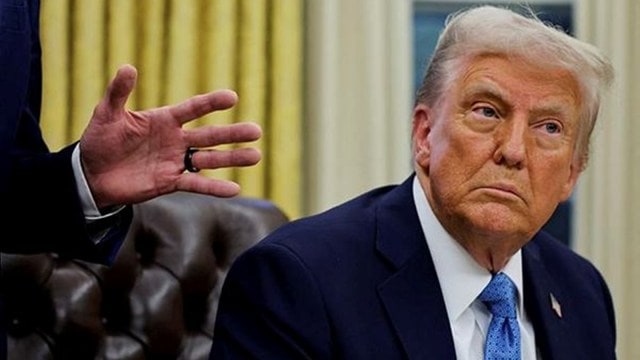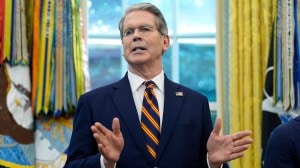Trump’s tariffs on Mexico and Canada to Russia’s strikes on Ukraine – a look at the world this week
From US President Donald Trump urging NATO members to boost their defence spending to trade tensions with Canada and Mexico heightening due to new tariffs, here are a few events that took place this week.
 Trump has reiterated his belief that the US is shouldering an unfair financial burden on global security. (Reuters photo)
Trump has reiterated his belief that the US is shouldering an unfair financial burden on global security. (Reuters photo)Welcome to this week’s comprehensive roundup of key global events and developments shaping politics, economics, and society. From major diplomatic manoeuvres and security crises to economic policies with global implications, we bring you the latest updates and insights. For Indian audiences, these developments offer crucial insights into how global shifts may influence India’s foreign policy and strategic interests.
Whether it’s a headline that dominates international discourse or an underreported issue with far-reaching consequences, we provide a clear, in-depth, and analytical perspective on what matters most.
Trump’s standoff with NATO deepens
US President Donald Trump has escalated his criticism of NATO, warning that the US will withdraw security assurances from member states that fail to meet their defence spending obligations. Trump has reiterated his belief that the US is shouldering an unfair financial burden on global security and demanded that European allies increase their military expenditures immediately.
Trump’s remarks have sparked alarm among NATO allies, particularly in eastern Europe, where nations like Poland, Latvia, and Estonia rely heavily on US military presence as a deterrent against potential Russian aggression. French President Emmanuel Macron and German Chancellor Olaf Scholz have called for greater European defence integration, with renewed discussions on the formation of an independent European military force gaining momentum.
For India, a weakened NATO could shift global power balances, increasing the likelihood of expanded Russian and Chinese influence in Europe. This could have broader consequences for India’s partnerships in security and technology.
Russia and Ukraine: the battle for Bakhmut continues
Despite international calls for peace, the war in Ukraine continues to rage, with fierce fighting in the eastern city of Bakhmut. Russian forces have intensified their offensive in the region, aiming to consolidate control over strategically significant areas. Ukrainian forces, backed by Western military aid, have been engaged in a relentless defence of the city.
Russian missile strikes on Ukrainian infrastructure have also escalated, with recent bombings targeting Kyiv, Kharkiv, and Odesa. In retaliation, Ukrainian drones have struck Russian oil depots and military bases, signalling Kyiv’s growing capability to take the fight beyond its borders.
The European Union has announced a new package of military aid to Ukraine, while the US Congress remains divided on further assistance. The Trump administration has indicated a willingness to reassess the extent of US support, raising concerns among European allies about Ukraine’s ability to sustain its defence in the long term.
US-Mexico-Canada trade tensions rise over new tariffs
US President Trump has announced new tariffs on imports from Mexico and Canada, reigniting trade tensions with North America’s closest economic partners. The tariffs, which primarily target the automotive and steel industries, have been met with swift condemnation from Mexican President Claudia Sheinbaum and Canadian Prime Minister Pierre Poilievre, both of whom have vowed to retaliate with countermeasures.
The move has sparked concerns over potential disruptions in supply chains, particularly in the automotive and technology sectors, where integrated manufacturing relies on cross-border trade. Business leaders in the US have also warned that the tariffs could lead to higher prices for American consumers and job losses in affected industries.
Photos



- 01
- 02
- 03
- 04
- 05




























